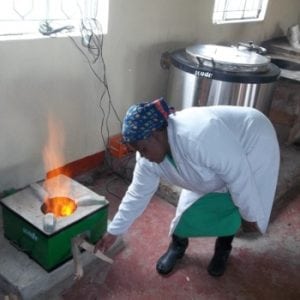
Agriculture
November 30, 2024
SCODE SP-FL Concrete Body
Read SolutionImplemented by
Sustainable Community Development Services (SCODE)
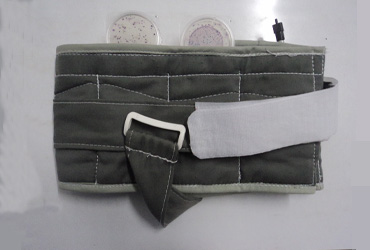
Updated on January 27, 2024
·Created on October 1, 2020
The Body Belt Incubator is a body-heat utilizing reusable incubator for microbiological water quality field testing.
The ENPHO Body Belt Incubator is a lightweight fabric and reusable belt used to store microbiological water test samples under certain ambient body heat temperature environments.
Target SDGs
SDG 6: Clean Water and Sanitation
SDG 3: Good Health and Well-Being
Market Suggested Retail Price
$4.20
Target Users (Target Impact Group)
Community
Distributors / Implementing Organizations
UNICEF and ENPHO Laboratories
Regions
Worldwide
Countries
Nepal
Manufacturing/Building Method
The Body Belt Incubator is developed and manufactured by ENPHO Laboratories.
Intellectural Property Type
Trademark
User Provision Model
This technology can be purchased through ENPHO's website and through the UNDP.
Distributions to Date Status
By 2020, 730 had been deployed. Interview with manufacturer
Test types included
E. Coli and other microbiological tests
Equipment included
Reusable cloth and velcro belt
Tests per kit
18 tests per kit
Detection range
N/A
Processing time for one sample (hr)
24 hrs
Additional materials required
N/A
Power required (yes/no)
No
Complete kit weight (kg)
Unknown
Design Specifications
The Body Belt Incubator uses ambient body heat to incubate microbiological water samples by maintaining an average temperature of anywhere from 25 °C to 40 °C. However, most tests conducted report an average temperature of 33-35 °C.
Technical Support
N/A
Replacement Components
N/A
Lifecycle
The product's lifecycle depends on how often it is used and worn out as it is a fabric cloth product.
Manufacturer Specified Performance Parameters
No significant variation in results between the belt and electric incubation techniques.
Vetted Performance Status
The belt has been tested by the Central Bureau of Statistics in Nepal and the Nepal Multiple Indicator Cluster Surve and found that the belt consistently holds a temperature between 33 and 35 °C.
Safety
It is important to ensure that the belt is secure but not too tight as to restrict blood flow.
Complementary Technical Systems
None
Academic Research and References
“Ecoconcern,” Com.np. https://ecoconcern.com.np/
“Incubation Belt for MICS.” n.d. Unicef.Org. https://supply.unicef.org/s0000593.html
“Ecoconcern.” n.d. Com.Np. https://ecoconcern.com.np/enpho_lab
“Goal 6.” n.d. Sdgs.Un.Org. https://sdgs.un.org/goals/goal6
N.d. Engineeringforchange.Org. https://www.engineeringforchange.org/wp-content/uploads/2020/07/ENPHO-Body-belt.pdf
“Body Belt Incubator -a Low Cost, Easy-to-Use and Non-Electric Incubator.” n.d. Engineeringforchange.Org. https://www.engineeringforchange.org/wp-content/uploads/2020/07/portable-body-belt-incubator.pdf
“ENPHO Body Belt Research Results from One of the Research Conducted by Environment & Public Health Organization (ENPHO) -Nepal.” n.d. Engineeringforchange.Org. https://www.engineeringforchange.org/wp-content/uploads/2020/07/ENPHO-Body-Belt-Research-Results.pdf
Compliance with regulations
Unknown
Evaluation methods
Chromocult Agar with Body Belt Incubation vs. the Standard Method Test
Other Information
None

Agriculture
November 30, 2024
Implemented by
Sustainable Community Development Services (SCODE)
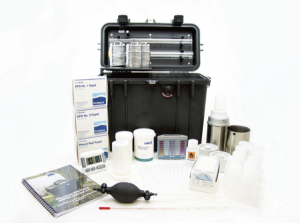
Agriculture
January 18, 2024
Implemented by
Barry Lloyd, University of Surrey

Agriculture
January 27, 2024
Implemented by
Water and Environmental Engineering, University of Bristol

Agriculture
December 19, 2023
Implemented by
GlobalNeoNat
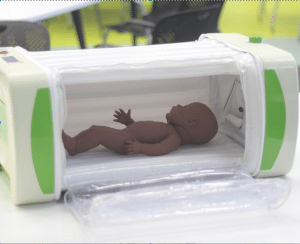
Agriculture
September 27, 2024
Implemented by
mOm Incubator
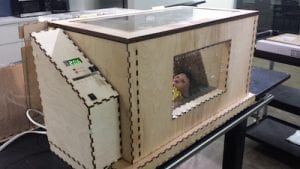
Agriculture
September 27, 2024
Implemented by
Rice University
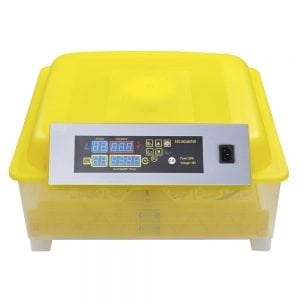
Agriculture
August 22, 2024
Implemented by
Engoho Kuku Farmer
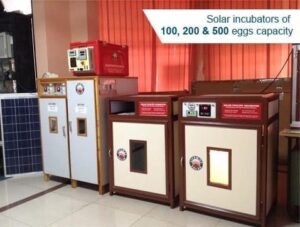
Agriculture
January 8, 2024
Implemented by
Lifeway Solar
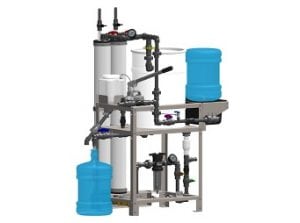
Agriculture
January 8, 2024
Implemented by
Healing Waters International

Agriculture
January 3, 2024
Implemented by
Department of Civil and Environmental Engineering, University of Virginia
Have thoughts on how we can improve?
Give Us Feedback